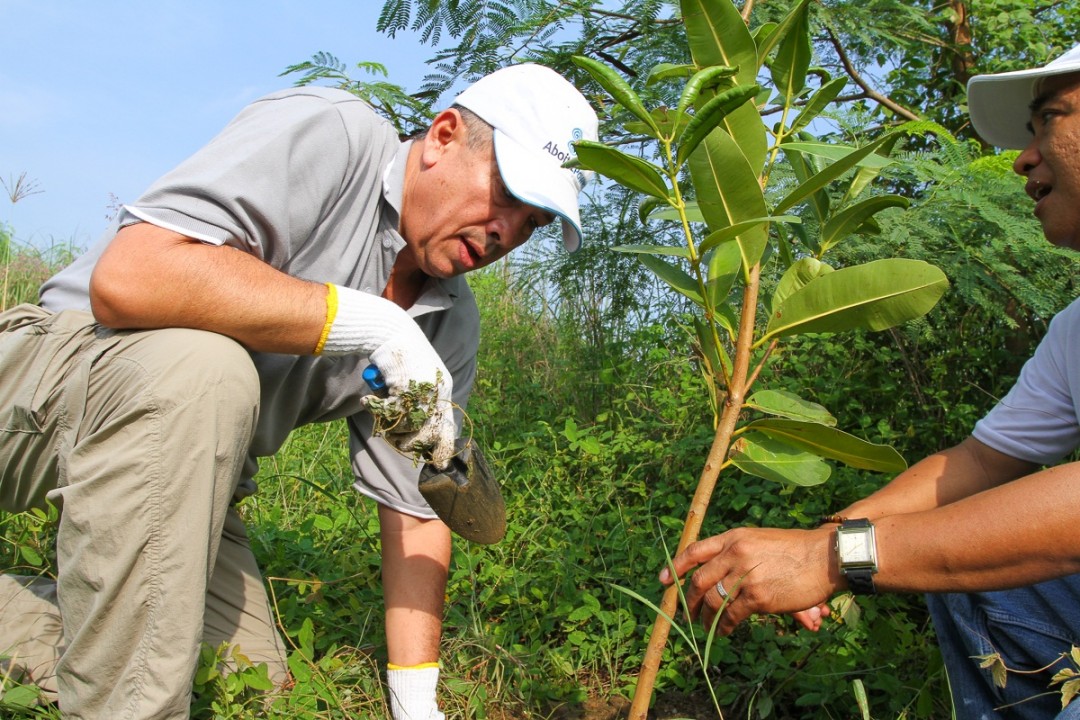Newest Local Wetland on the Critical List for International Biodiversity Benefits from Aboitiz Group

The Las Pinas-Paranaque Critical Habitat and Ecotourism Area (LPPCHEA), the latest site in the Philippines to become part of the Ramsar List of Wetlands of International Importance, was among the 16 locations of the simultaneous tree-planting activity of the Aboitiz Group of Companies last Saturday.
The list is the flagship project of the Ramsar Convention, which was signed in 1971 in Ramsar, Iran, is an intergovernmental treaty on the conservation and sustainable use of natural resources. The Philippines joined the convention in 1994, and six local wetlands have already been included in the list.
Being on the Ramsar List is a testament to the importance of LPPCHEA to preserving global biological diversity and sustaining human life, as it is part of an international network of wetlands that are critical to maintaining a healthy and balanced ecosystem.
“Given the impact that such a small patch of land has on the planet, our sense of responsibility as its caretakers and the consequence of this effort become even more critical,” points our Aboitiz Equity Ventures Inc. President and Chief Executive Officer Erramon I. Aboitiz.
LPPCHEA, a 175-hectare protected wetland located along the western side of Aguinaldo Highway (Coastal Road) and bounded on the North and South by the Paranaque and Las Pinas Rivers, respectively, is also the home of the only urban bird sanctuary in the Philippines.
About 5,000 individual birds have been recorded at the site. Of the estimated 84 species, about 47 are migratory, coasting the East Asian-Australasian flyway to flee the harsh Russian winter for the warm Australian summer.
Under Presidential Proclamation No. 1412 of 2007, LPPCHEA also became the country’s first critical habitat, an area that is designated to the conservation of threatened and endangered species. The area covers two islands, Freedom Island and Long Island, with mudflats, and about 30 hectares of dense mangrove forests.
“Choosing the right places where we plant trees is just as important as hitting our targeted number of trees,” added Mr. Aboitiz.
The tree-planting activity is part of the Aboitiz Group’s flagship sustainability project, Aboitiz Passion for Agroforest and Reforest to Keep (APARK). APARK aims to plant 3 million trees by 2015, and as of last
year, 2.7 million trees have already been planted. The Aboitiz Group is confident that they will hit the target by the end of this year, two years ahead of schedule.
Mr. Aboitiz pointed out that the reforestation effort ultimately addresses the pressing issue of climate change. APARK reinforces a responsible mindset among the Aboitiz Group employees, reminding them that everyone has a role to play in taking care of the environment.
Close to 3,000 employees from across 24 business units sacrificed personal time to contribute to the group-wide environmental initiative. Saplings of endemic trees agoho, talisay, and bitaog trees were planted in LPPCHEA and the other locations selected by the Aboitiz Group for the activity.
The other areas are Makban, Laguna; Tiwi, Albay; Guba, Cobcawa, Cebu; Marilog District, Talomo, and Marilog, Davao; Dimpatoy Watershed, Cotabato; Ambuklao and Binga, Benguet; Magat Watershed, Ifugao; Maco, Compostela Valley; Nasipit and Capas, Tarlac; and Sta. Elena, Iligan.
Apart from tree-planting, some of the volunteers also engaged in coastal cleanup activities.




